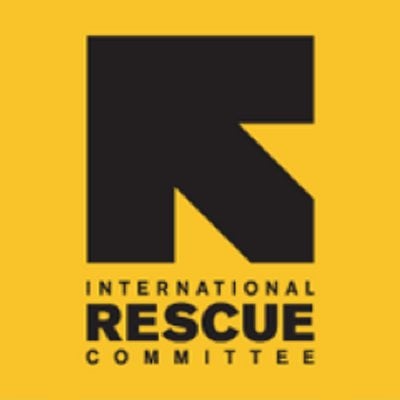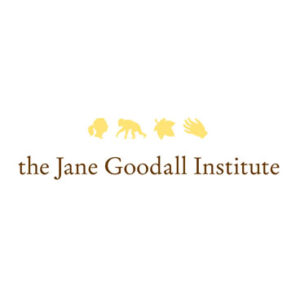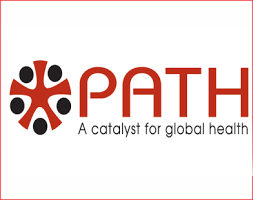The International Rescue Committee (IRC) responds to the world’s worst humanitarian crises, helping to restore health, safety, education, economic wellbeing, and power to people devastated by conflict and disaster. Founded in 1933 at the call of Albert Einstein, the IRC is one of the world’s largest international humanitarian non-governmental organizations (INGO), at work in more than 40 countries and more than 25 U.S. cities helping people to survive, reclaim control of their future and strengthen their communities. A force for humanity, IRC employees delivers lasting impact by restoring safety, dignity and hope to millions. If you’re a solutions-driven, passionate change-maker, come join us in positively impacting the lives of millions of people world-wide for a better future.
Background
Founded in 1933 at the request of Albert Einstein, the International Rescue Committee (IRC) responds to serious humanitarian crises around the world and helps victims to survive and rebuild their lives.
For over half a century, Tanzania has been a country of asylum, hosting one of the largest refugee populations in Africa. Currently, the country hosts approximately 287,903 Burundian and Congolese refugees, many of whom arrived in 2015 as the crisis in Burundi increased. To date, refugees continue to co-exist with the host communities in Kigoma region expressing multiple reasons and needs. Within this context, IRC provides protection and basic assistance in the areas of Safety (comprises of Protection and Rule of Law, Women Protection and Empowerment, and Child Protection), Health (mental health and psychosocial support services and reproductive health), and Education.
Scope Of Work
Responsive information services are an innovative service provision initiative providing the humanitarian community with a platform to reach refugees, asylum seekers, and crisis-affected communities around the world with accessible information. This programming will take a holistic approach to address information needs in Nyarugusu and Nduta refugee camps, by both providing information to refugees in the camps through a medium they chose and collecting data on the types of information that refugees want and need to receive, so we can constantly adapt our content to the needs expressed. It is a useful information resource for people in need and fosters more in-depth community, more trust, and, most importantly, more utility for its users. IRC will use information hubs located within communities to communicate directly with refugees and asylum-seekers listen to their questions and provide information, through frontline staff using a digital platform that provides updated articles and service maps as a basis of information.
In Tanzania, the Signpost initiative will be implemented through face-to-face two-way communication systems in information hubs throughout the camp in Nyagurusu and Kibondo, targeting mainly the Burundian refugees. A folder will be designed and populated with content and made available offline in information hubs, and frontline staffs will be trained to both provide information to refugees in the camp and respond to their individual questions and inform the Editorial Senior Officer on the information needs and concerns expressed by the refugees, especially on returns, to develop content that responds to the expressed needs.
The Responsive Two-Way Information services will work through 1) the creation of information content and provision of information to Burundian refugees in Nyagurusu camp, including on return options, services available upon return, how to access legal assistance in Burundi, etc, and 2) collecting feedback about the most pressing questions from refugees.
The Editorial Sr officer in Tanzania will work closely with its counterpart in Burundi, to collect information in Burundi about return, regularly update the content and service map provided in the camp in Tanzania, and thus provided up to date, trusted information to the refugees in the camp
Job Overview
IRC is seeking a Senior Editorial Officer to be based in Kasulu and to oversee the responsive information services at the information hubs located within the communities. The Sr Editorial Officer will directly manage 2 information assistants in the camps.
The Signpost Editorial Senior officer’s main responsibilities are helping develop and implement content strategy and assigning, line and copy editing, and approving content for the digital platform, and other Information Education and Communication materials produced. S/he is tasked with ensuring the content is accurate, complete, easy to understand, inclusive of refugees visual or auditive impairment and engaging.
The Editorial Sr officer is also responsible for using our content management system and other tools to work with frontline staff to usher content from the first draft through editing and translation and ultimately to its final, published form. The Editorial Sr officer will also pitch and create content for the Responsive Information Service platform.
Additionally, the Editorial Sr officer will work closely with the Information Manager in Burundi, to collect and compile information about services in Burundi for refugees upon their return.
The Sr Editorial Officer will be line-managed by the Project Manager and work closely with the PRoL team.
Major Responsibilities
- Ensure content is accurate, complete, easy to understand and engaging.
- Conduct Information needs assessment
- Collaborate with the Senior Protection and Rule of Law Manager and technical advisers to manage information budget lines and ensure the accomplishment of communication objectives
- Develop a content strategy, copy-edited, and approved content for the digital platforms, as well as other educational information and communication materials produced.
- Edit written and multimedia content created / suggested by frontline staff.
- Publish content in the offline version of the Box content folder.
- Ensure the editorial calendar is up to date.
- Help monitor refugee’s feedback.
- Assist frontline staff with face-to-face responses to refugees.
- Draft reports on Signpost content as assigned.
- Regularly interact with counterpart in Burundi to ensure content about returns is accurate and up to date.
- Develop a digital/ CMS service map including all service providers within refugee camps
- Collaborate with the M&E team to collect, analyze, and share protection concerns data in the refugee camps as well as the host community, through timed protection monitoring activities
- Utilized the organization’s content management system and other tools to work with front-line staff to usher content from the first draft through editing, translation, and ultimately to its final, published forms
Team Collaboration
- Collaborate with the Senior Protection and Rule of Law Manager (ProL) Manager and the PRoL team in Tanzania, the Information Manager in Burundi; as well as with the frontline staff, to manage content across the information hubs.
- Ensure content is aligned with the content strategy and appropriate for publication.
- Use online tools and other modes of communication to consistently share information with other members of the editorial team.
- Participate in all team meetings, workshops, strategy sessions, regular communications, etc., as established by the Sr PRoL Manager.
Standard of Professional Conduct:The IRC and the IRC workers must adhere to the values and principles outlined in the IRC Way – our Code of Conduct. These are Integrity, Service, Accountability, and Equality.
Commitment to Gender, Equality, Diversity, and Inclusion: The IRC is committed to creating a diverse, inclusive, respectful, and safe work environment where all persons are treated fairly, with dignity and respect. The IRC expressly prohibits and will not tolerate discrimination, harassment, retaliation, or bullying of the IRC persons in any work setting. We aim to increase the representation of women, people that are from country and communities we serve, and people who identify as races and ethnicities that are under-represented in global power structures.
Education
Minimum Qualifications:
- BA/BS in English, Journalism, Communications, required.
Demonstrated Skills And Competencies
- Minimum 3 years editing experience required; sub-editing/copy editing experience strongly desired.
- Expert-level knowledge of English grammar and usage.
- Working knowledge of French a plus
- Knowledge of online content best practices.
- Knowledge of social media strategy and communication with community practices.
- Experience in Communication with Communities experience a plus
- Experience in a humanitarian organization a plus.
- Ability to draft weekly reports and other project progress reports of high quality.
- Ability to conduct information needs gap assessments in various sectors to inform appropriate intervention and response to people’s queries.
- An understanding of the power and importance of accurate information and the ability to exercise strong judgement in ensuring all answers are accurate.
Language Skills
- Advanced Kiswahili and English language skills, oral and written.
- Working knowledge of Kirundi and/or French a plus.
Preferred Experience & Skills
- Very strong content editing skills required.
- Ability to work effectively with a diverse team in a sensitive environment.
- Ability to work independently with remote management.
- Strong interpersonal skills and high emotional intelligence.
- Ability to handle pressure and ambiguity with grace and humor.
- Proven organizational skills.
- Respect for deadlines.
- Strong interest in refugee/humanitarian issues.
- Good news judgment.
- Photo and video skills a plus Proficient in Microsoft Office suite (Word, Excel, PowerPoint etc.)
- Demonstrated ability to work effectively with stakeholders at all levels.
Working Environment
- Standard office work environment with field visits to the camps.
The IRC Core Values And Commitments
The IRC and IRC workers must adhere to the values and principles outlined in IRC Way – Standards for Professional Conduct. These are Integrity, Service, Accountability and Equality. In accordance with these values, the IRC operates and enforces policies on Adult and Child Safeguarding, Anti Workplace Harassment, Fiscal Integrity Anti-Retaliation, and Combating Trafficking in Persons.
Diversity, Inclusion and Gender Equality.
IRC acknowledges and honors the fundamental value and dignity of all individuals. We are an Equal Opportunity Employer and consider all applicants based on merit without regard to race, sex, color, national origin, religion, gender identity, age, marital status, veteran status, or disability. IRC is also committed to narrowing the gender gap in leadership positions. We offer benefits that provide an enabling environment for women to participate in our workforce including parental leave, gender-sensitive security protocols, and other supportive benefits.
Warning
Please be warned of various scams, being circulated via e-mails, from Internet websites, and via regular mail or fax, falsely being issued by or associated with the IRC. Beware that The IRC does not charge a fee at any stage of its recruitment process (application, interview meeting, processing, training, or any other fee). IRC does not request any information related to bank accounts. If asked for any payment, please contact [email protected].



